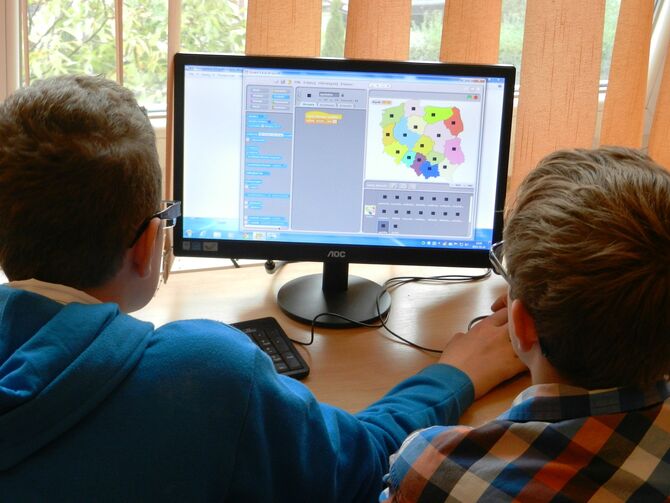How can Britain address the digital skills crisis in schools?
A new report from the House of Commons' science and technology committee sets out how schools can address a serious digital skills shortage in the UK.

Digital technology in schools
The report paints a picture of a technological revolution in schools in the UK over the last two decades, citing examples of classrooms complete with interactive white boards and tablets available for students. But, says Ofsted, differing investment levels across local authorities and school funding models means that the quality and extent of provision varies widely.Not only that, while teachers might be willing and enthusiastic, only 35 per cent of ICT teaching staff have a relevant qualification and the British Educational Suppliers Association (BESA) calculated that 22 per cent of IT equipment in schools is ineffective.Schools need more computer science teachers
The committee recommends that the government sets clear targets for the recruitment of well-qualified teaching staff in ICT.“The government has set targets for recruiting teachers in Maths and Physics,” the report states. “They should also make a similar pledge for Computer Science. This would demonstrate a commitment to equip our future generation with the tools and resources to navigate the digital world, and provide a means of monitoring progress.”A new computing curriculum was launched in England’s schools in September 2014, focusing on the basics of how computers work, digital literacy and information technology. The curriculum was welcomed by the likes of Google, Microsoft and the BBC, but with so few teachers qualified in computing skills the report has found that teachers are struggling to deliver the new curriculum.Calls for more investment in computer teaching
The committee believes that more investment into the training of computer science teachers is essential in order to support the delivery of the new curriculum.According to the report, financial incentives have not been enough to attract sufficient computer science teachers into the teaching profession and recommends that the government “review the case for financial incentive” when recruiting and retaining computer science teachers.Gender imbalance in STEM subjects
Stark figures from the report reveal a massive gender imbalance in those studying computing. 16 per cent of computer science students are female, a figure that persists through university and into the workplace.A survey into the attitudes of girls towards the study of STEM subjects demonstrated that a staggering 60 per cent of 12 year-old girls in the UK and Ireland believed that they were “too difficult to learn” and were better suited to boys. Simon Humphreys from Computing at School believes that schools need to start earlier in breaking down these misconceptions and opening up the computing and technology curriculum to pupils from the early stages of primary education.“If we have not enabled, motivated and inspired girls, as well as boys, that STEM-related subjects and computer science are relevant to them and provide an opportunity to participate in the workplace in something so transformative and life-changing, we have lost them,” says Simon Humphreys. “That is why the changes made to the primary curriculum for computing in computational thinking, creative problem solving and setting challenges pre-puberty are very important.”The committee suggests that government needs to work with schools and employers to get to grips why girls in do not demonstrate an interest in digital courses and careers. In the new Guide to International Education & Schools, Karin Purcell, Director of Development and Communications at Marymount International School an all-girls school in London looks at how girls can be encouraged to participate in shaping the digital world.Relocate Global: Guide to International Education and Schools
Relocate Global’s new Guide to International Education & Schools is an invaluable resource for HR, global managers, employers, relocation professionals and relocating parents.Relocate Global’s new annual Guide to International Education & Schools provides a wealth of advice to anyone searching for a new school in the UK and in an international setting, and offers insights into what it takes to make the right school choice.
©2025 Re:locate magazine, published by Profile Locations, Spray Hill, Hastings Road, Lamberhurst, Kent TN3 8JB. All rights reserved. This publication (or any part thereof) may not be reproduced in any form without the prior written permission of Profile Locations. Profile Locations accepts no liability for the accuracy of the contents or any opinions expressed herein.




































